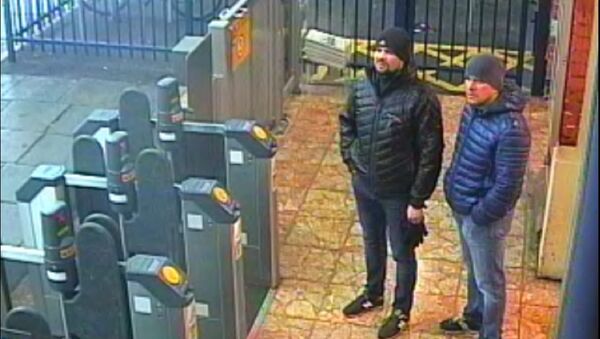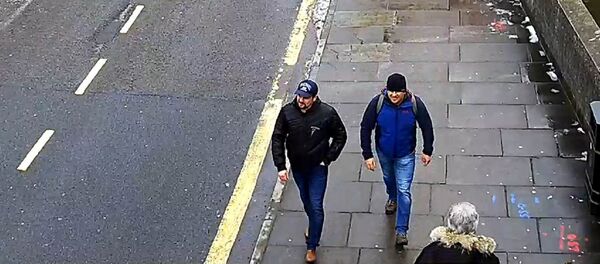British intelligence agencies, investigating a series of trips made by two Russian suspects in the March nerve agent attack on former Russian intelligence officer Sergei Skripal and his daughter in Salisbury, have determined that Ruslan Boshirov and Alexander Petrov traveled to Geneva at least six times ahead of their alleged attempt to assassinate Sergei Skripal, The Telegraph wrote.
According to The Telegraph story, Boshirov and Petrov are believed to have also visited Paris, Amsterdam and Bergamo on Aeroflot flights, also traveling with Air France and KLM.
It is noted that London could have disclosed this information earlier, but did not do so because of "fears of exposing a large number of British subjects to a probable threat" during the World Cup, which was held this summer in Russia.
The newspaper earlier wrote that when applying for British visas in St. Petersburg, Alexander Petrov and Ruslan Boshirov posed as businessmen engaged in international trade and provided business cards and extracts from their bank accounts to the tune of thousands of pounds sterling.
When speaking in parliament on September 5, British Prime Minister Theresa May, said that British prosecutors were ready to bring formal charges against Alexander Petrov and Ruslan Boshirov in the attempt to assassinate Sergei and Yulia Skripal.
According to her, they are Russian military intelligence officers. London does not intend to seek their extradition, arguing that it is useless.
The Russian Foreign Ministry said that Moscow was not involved in the Skripals’ poisoning, knows nothing about the two men and said that it was ready to cooperate with the British on the case.
66-year-old former Russian intelligence officer Sergei and his daughter Yulia Skripal were found unconscious on a bench outside a shopping mall in Salisbury on March 4.
READ MORE: Skripal Skeptics: Which Countries Didn't Agree With UK's Assessment of Case
British authorities blamed the attack on Russia, which has consistently denied the charge, pointing to the complete absence of evidence linking it to the March 4 incident.
In wake of the Salisbury incident, the US, Canada and several European nations, including France, Germany, Italy and Poland, expelled over 100 Russian diplomats.
Russia retaliated by sending home an equal number of Western diplomatic staff.



